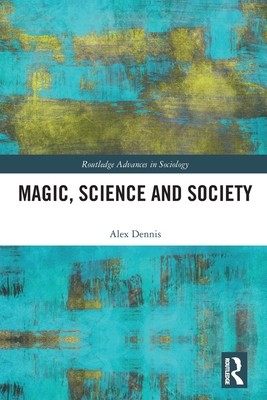
- We will send in 10–14 business days.
- Author: Alex Dennis
- Publisher: Routledge
- ISBN-10: 1032787589
- ISBN-13: 9781032787589
- Format: 15.6 x 23.4 x 0.8 cm, softcover
- Language: English
- SAVE -10% with code: EXTRA
Reviews
Description
Magic, Science and Society investigates the way the 'rationality debate' has developed over the last century, from E.E. Evans-Pritchard's study of Azande magic, through Peter Winch's argument that there can be no such thing as a social science, across the arguments about the proper status of science in the 1970s and 1980s, to the 'epistemological' and 'ontological' turns of the early 21st century.
Different people have different understandings of what is rational: some practice magic, some orientate to legal convention and tradition, others defer to science and logic. Starting with anthropological studies of witchcraft, and working through to contemporary debates about epistemology and ontology in social science, this book systematically examines the ways key questions about these issues have been framed and answered. These include:
- Can 'magic' be real, either for members of the cultures that practice it or more generally?
- How can we arbitrate between different types of rationality?
- Is science a benchmark for studying other forms of rationality or just a cultural practice like any other?
- What are the implications of these issues for the social sciences themselves?
This book will be of interest to anthropologists, sociologists, philosophers of the social sciences and science studies practitioners.
EXTRA 10 % discount with code: EXTRA
The promotion ends in 16d.09:03:17
The discount code is valid when purchasing from 10 €. Discounts do not stack.
- Author: Alex Dennis
- Publisher: Routledge
- ISBN-10: 1032787589
- ISBN-13: 9781032787589
- Format: 15.6 x 23.4 x 0.8 cm, softcover
- Language: English English
Magic, Science and Society investigates the way the 'rationality debate' has developed over the last century, from E.E. Evans-Pritchard's study of Azande magic, through Peter Winch's argument that there can be no such thing as a social science, across the arguments about the proper status of science in the 1970s and 1980s, to the 'epistemological' and 'ontological' turns of the early 21st century.
Different people have different understandings of what is rational: some practice magic, some orientate to legal convention and tradition, others defer to science and logic. Starting with anthropological studies of witchcraft, and working through to contemporary debates about epistemology and ontology in social science, this book systematically examines the ways key questions about these issues have been framed and answered. These include:
- Can 'magic' be real, either for members of the cultures that practice it or more generally?
- How can we arbitrate between different types of rationality?
- Is science a benchmark for studying other forms of rationality or just a cultural practice like any other?
- What are the implications of these issues for the social sciences themselves?
This book will be of interest to anthropologists, sociologists, philosophers of the social sciences and science studies practitioners.


Reviews